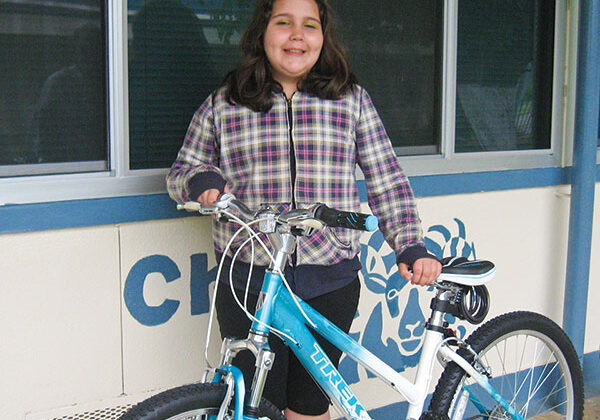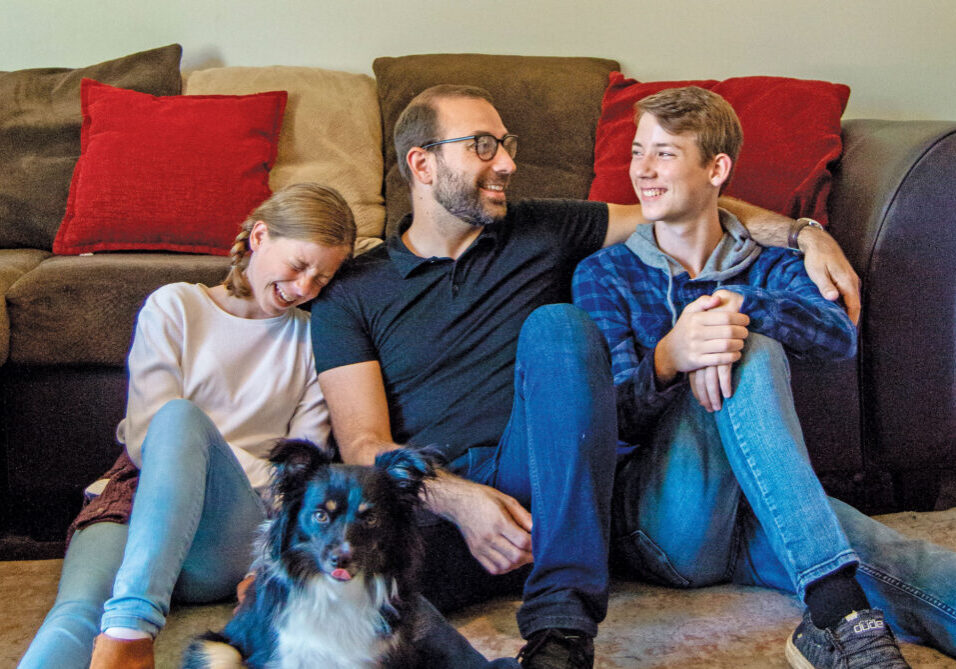These days my teenage daughter cheerfully refers to herself as an ambivert, meaning a person who has both introvert and extrovert qualities. But this was not always the case. When she was an infant and a toddler, my daughter was highly sensitive and shied away from strangers, did not embrace new situations, and had trouble making transitions. She showed all of the signs of an introverted, highly sensitive person. She was picky about what she ate, showed an automatic resistance to new foods, and only adapted to anything new, whether food, people or situations, at her own pace.
Do you know where you and your children fall on the introvert-extrovert spectrum? It’s important to know that, while temperament is typically consistent for a lifetime, it is not a life sentence. Parents can help their introverted and sensitive children acclimate themselves to the ways of the world. No one tendency is better than any other, even if it is more common. Knowledge is always power, especially when it comes to our family dynamics and our children’s development.
Common definitions of temperament
Extroverts are typically outgoing, gregarious people. Extroversion means the act of directing one’s attention outward or to things outside the self. Extroverts typically prefer the external environment over exploring their own thoughts and feelings.
Estimated percent of population: 50-74%
Introverts are typically considered to be “shy,” but this is not always true. An introvert prefers his own company or the company of one or a few people rather than exposure to many or a crowd of people.
Estimated percent of population: 33-50%
Ambiverts have some qualities of both extroverts and introverts.
Estimated percent of population: 38-66%
Highly Sensitive Person (HSP) According to Susan Cain, author of the book Quiet, The Power Of Introverts In A World That Can’t Stop Talking, an HSP processes information about the emotional and physical environment deeply. She tends towards philosophical and spiritual thinking rather than materialistic and hedonistic thinking. He observes carefully before taking risks. HSPs describe themselves as creative or intuitive; has a love of music, nature, art, and physical beauty and is highly empathic.
Estimated percent of population: 15-20%

Knowing where you and your children fall on the introvert/extrovert spectrum is important.
Living in an extroverted world
According to Susan Cain, we live in an extroverted world, where these qualities tend to be embraced and praised more than introvert qualities. Since introversion is not typically celebrated in children, a child who is introverted and highly sensitive may have a difficult time fitting in and finding a comfortable tribe.
Some parents unwittingly pressure their children to be more social than they wish to be, fearing that their children may be left out or fall behind socially. Extroverted parents may not fully understand the temperament of an introvert child and may pressure that child to change behavior without considering the child’s point of view.
Identifying the temperament of each person in your family can help you increase family harmony and support each child in interacting with the world. You may need to invest some time and research into understanding different points of view, especially within your own family. As a payoff, you will be able to help your introverted and highly sensitive children better navigate the world.
Temperament is about how each person feels naturally, not merely about how they behave. Practice accepting each person for who they feel they are. Listen to what they want you to understand without trying to change them. More than any other desire, people usually wish to be seen, understood and accepted for who they truly are.
Helping Children Thrive As They Grow
Here are some tips for helping any child adapt to an extroverted world at different ages:
Pay close attention to your baby’s signals
The first thing you can do to better bond with your baby is identify and accept his temperament. So if you have a fussy, sensitive baby, try to give her what she needs without expecting her to be a babbling, jovial baby. Pay close attention to your baby’s signals and learn how to respond by trusting your own instincts and applying reasonable trial and error. And don’t be surprised when your baby becomes more bouncy and bubbly once you start paying closer attention to what she needs rather than paying so much attention to what others project.
Toddlers are naturally adventurous
Your introverted and highly sensitive toddler may not be as adventurous as others, but don’t let this disappoint you. Be loving and encouraging and celebrate even the smallest of milestones with glee. Sensitives often reserve their hesitation for the company of strangers and may act like any other toddler while surrounded by loved ones. However, be careful not to confuse unmet milestones with introversion or sensitivity. If you have a milestone concern, be sure to discuss it with your physician.
Take baby steps with preschoolers
If getting your introverted and sensitive child through the door of the school is a challenge in and of itself, try scaffolding the transition. In her podcast for parents and educators, Cain suggests taking baby steps. First, walk your child all the way into the classroom. The next day, stop at the door. The next day, stop down the hall a bit. You get the picture. If this strategy isn’t working, enlist the help of a welcoming, familiar presence to ease the way. I know my daughter always managed transitions best with a quick forecast of what was about to happen, rather than just trying to wing it.
Enlist classroom help for kids in elementary school
Recess might be torture for your little introvert or HSP, unless he can connect with some children in his class who share his temperament. Consult with the teacher or playground monitor to enlist assistance and brainstorm ideas. Many children at this age play group imagination games during recess rather than sports and other more physical games. Some kids may switch back and forth between groups depending on how they feel. Encourage your child to find the friends who are doing activities he enjoys most each day.
Bully-proof your middle-school child
Bully-proofing your introverted and highly sensitive child is important, so don’t hesitate to discuss and even role-play how to handle socially aggressive situations. Bullying happens, and though it’s unclear whether introverts and highly sensitive children are bullied more, they certainly may take negative treatment more to heart. Above all, encourage your child to progress socially at her own pace, regardless of how other children are behaving.
High school offers lots of options for introverts
By the time your introvert or HSP gets to high school, she will definitely want to find her tribes. Luckily many introverted options are usually available at the high-school level. Consider activities like fine arts, creative writing, martial arts, and robotics. Some introverts may even enjoy choir, band, and theater. As for sports, your sensitive child may prefer sports with less physical contact like swimming, softball, baseball, track, tennis or dance. Don’t be concerned if your child does not immediately find peer groups in high school. A little bit of shuffling of friend and activity choices is common when kids are learning to be more clear about what they like and want.
Choose colleges that offer balance
Your college-aged sensitive teen needs balance. He may embrace the usual college social situations like class rites of passage, fraternity rush, and themed dances, but find he needs more down time between social events than his peers. Try to choose a college that honors the needs of more introverted students. Your student would likely prefer one roommate to three, a large library with designated quiet rooms and lots of nooks and crannies for hiding away, and scholarly programs that honor the way he learns best. So when it comes to selecting a suitable school, don’t settle for anything less than what your student craves.
Posted in: Health & Nutrition, Youth & Teen
Comment Policy: All viewpoints are welcome, but comments should remain relevant. Personal attacks, profanity, and aggressive behavior are not allowed. No spam, advertising, or promoting of products/services. Please, only use your real name and limit the amount of links submitted in your comment.
You Might Also Like...

Ten Ideas For Hosting A Birthday Party For The Pre-Teen And Teenager
Sitting on the front porch of her new house, a little girl turning 3 began inviting all the children passing by to her birthday party. Overhearing, her startled mother quickly […]

Veg Out! – How to Get Your Kids to Eat Fruits and Vegetables
If you’ve read anything health-related in the last ten years, you know there have been all sorts of trends when it comes to acceptable eating. Dairy, soy and eggs have […]

“How A Bike Would Change My Life” Student Essay Contest Winner
My name is Celena Romero and I am a 6th Grader at Shasta Lake School. My Mom does not drive and it makes it really hard on me as I am in […]

Prepare Your Kids for College: 10 Things to Do Now So They Are Ready
My son looked at me with dread in his eyes. He needed to find out about driver’s education classes and there was minimal information on the website. I smiled and […]



